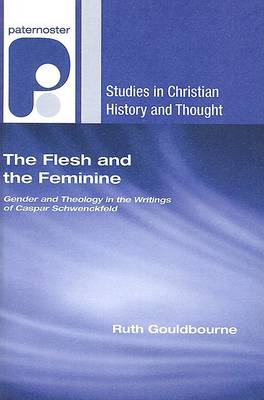Studies in Christian History and Thought
1 total work
"During the sixteenth-century reformations Caspar Schwenckfeld was one of the mavericks and creative thinkers who made up the amorphous grouping of radicals.At the time, and since, much has been made of the number of women who were attracted to his theology. Various reasons for this have been
suggested, ranging from the attractions of a well-spoken nobleman through to the pull of a more domestic religion. This study argues that the attraction lay in the theology which Schwenckfeld explored and offered, and the ways in which it destabilised the accepted social and biological definitions of
gender identity."--BOOK JACKET.
suggested, ranging from the attractions of a well-spoken nobleman through to the pull of a more domestic religion. This study argues that the attraction lay in the theology which Schwenckfeld explored and offered, and the ways in which it destabilised the accepted social and biological definitions of
gender identity."--BOOK JACKET.
